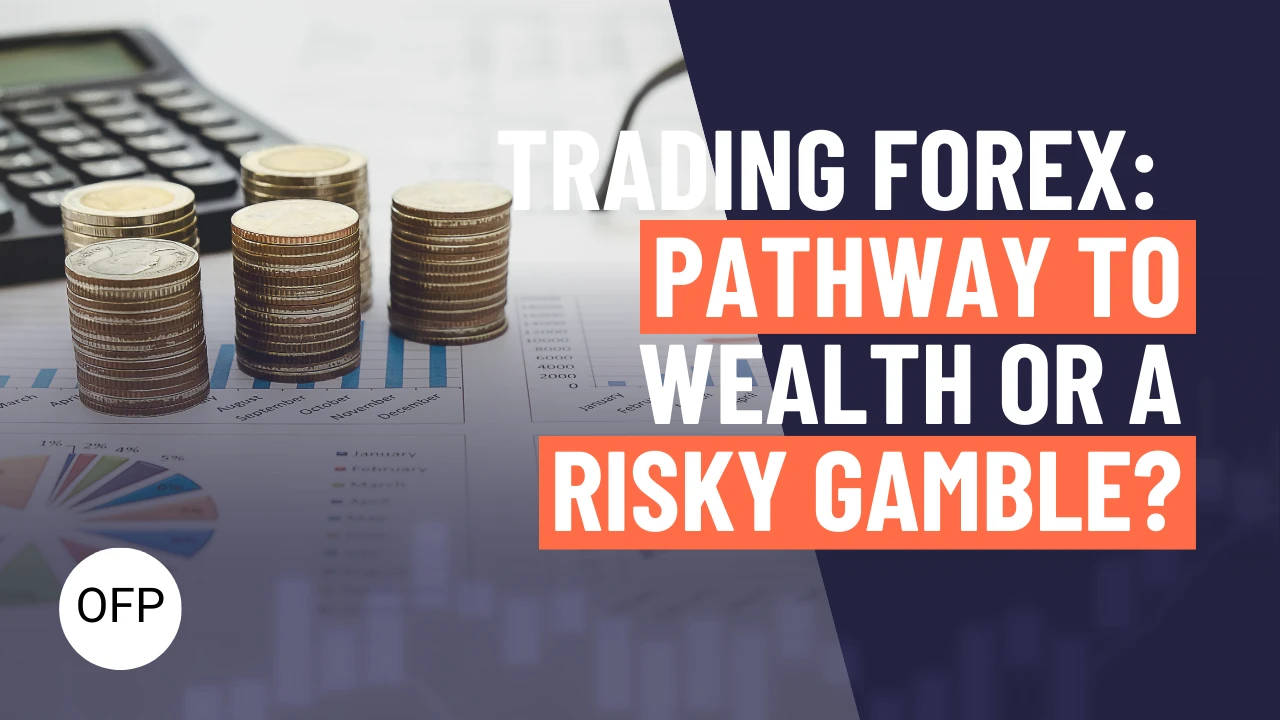
The UK’s Financial Conduct Authority (FCA) reported that 82% of retail traders, including those involved in Forex trading and contracts for differences (CFDs), end up losing money. This statistic highlights an important reality: trading is a zero-sum game where one trader’s profit is another’s loss. But what does this really mean for the aspiring trader?
Two Crucial Takeaways:
- Is Forex the Right Choice for You? Before jumping into Forex, take time to assess whether this form of investment suits your goals, risk tolerance, and lifestyle.
- 18% of Traders Break Even or Profit: While the numbers might seem daunting, statistics show that 18% of traders manage to break even or make a profit.
So, why do some traders thrive while others fall short? The answer lies in the mindset and preparation. It’s essential to approach Forex trading with the right intentions—rather than making a decision on a whim. When traders enter the market with clear, well-formed goals, they align themselves with the minority who can achieve long-term profitability.
Table of Contents
Trading Forex: Why Mindset Matters
Before diving into Forex trading, reflect on your motives. Are you looking to make a quick buck, or do you want to build a sustainable and profitable career? Trading with the right mindset increases your chances of success.
Think about it this way: if you’re only motivated by the excitement of big gains, you might fall into the trap of impulsive decisions. A solid trader knows that successful Forex trading requires strategy, patience, and an understanding of market behavior. As a result, those who act with wisdom and stick to informed decisions will be the ones that prevail in the long run.
Essential Tips for Forex Trading Success:
The Forex market is one of the most liquid and active markets in the world. The ability to trade 24 hours a day, five days a week, means that traders can access the market at any time, making it an ideal choice for those with flexible schedules. This access opens doors to opportunities, but it also brings certain risks that must be managed with precision.
Here are a few practical tips to set you up for success:
1. Master Technical Analysis
Forex traders rely heavily on technical analysis, which involves studying historical price movements, chart patterns, and technical indicators. By carefully analyzing these factors, traders can predict the direction of the market and make informed trading decisions.
It’s not about guessing where the market is going; it’s about understanding past patterns and using that knowledge to anticipate future price changes. A diligent trader who masters these tools can turn potential opportunities into profitable trades.
2. Prioritize Risk Management
Forex trading can be highly volatile, so having a solid risk management plan is non-negotiable. Always set your stop-loss and take-profit levels before entering a trade. This not only helps protect your capital but also ensures that you don’t get swept away by the emotional rollercoaster of trading. Risk management should be your first line of defense against unpredictable market shifts.
Remember, the key to longevity in Forex is not about hitting the jackpot with one trade but about being consistent with your approach and minimizing losses over time.
3. Create a Trading Plan
The importance of having a structured trading plan cannot be overstated. A good plan includes your trading style (scalping, swing trading, or position trading), your preferred currency pairs, your time horizon, and clear rules for risk management. This plan should act as your blueprint—helping you stay on track even when the market gets volatile.
It’s crucial to stick to your plan and avoid being swayed by emotions or market noise. A disciplined trader with a clear strategy is far more likely to see success than one who trades impulsively without a roadmap.
The Allure of Forex Trading: Low Costs and High Liquidity
Forex trading offers several advantages that make it an attractive choice for many investors.
- Low Costs: Unlike the stock market, Forex doesn’t involve high commissions. This lower cost structure allows even small investors to get started with little capital.
- High Liquidity: This market is the largest and most liquid financial market in the world. This liquidity ensures that traders can enter and exit positions quickly, reducing the risk of price manipulation and ensuring fair prices for all market participants.
Additionally, the sheer size and diversity of the Forex market allow traders to access various currency pairs, offering a wide range of trading opportunities. Whether you prefer short-term trading (day trading or swing trading) or long-term positions, the market accommodates all strategies.
Forex vs. Stocks: Which Is Riskier?
While both Forex and stock trading carry risks, Forex is often considered more volatile due to the high leverage involved. Leverage allows traders to control large positions with relatively little capital. While this can amplify profits, it also means that losses can be just as large, if not larger.
Unlike stocks, which are typically bought and held for the long term, Forex positions are often held for short periods, ranging from minutes to a few days. This rapid pace means that even small fluctuations in currency prices can have a significant impact on your profits or losses.
Forex demands constant attention, as prices can change quickly and unpredictably. This makes FX a more high-stakes environment, especially for beginners who are still learning the ropes.
Is Forex Trading Really Profitable? The Truth Behind the Hype
The question of profitability in this type of trading is complex. While it’s true that Forex presents ample opportunities for financial growth, it’s not an easy path to success. Many traders enter the market with the dream of striking it rich, but the reality is far more nuanced. To succeed, traders must follow several principles:
- Education: Understanding the fundamentals of Forex, market analysis, and trading strategies is essential for long-term success.
- Discipline: Successful traders maintain emotional control, sticking to their plans even during tough times.
- Risk Management: As mentioned earlier, effective risk management is key. Traders who fail to manage their risks effectively will likely find themselves losing more than they gain.
It’s also important to remember that Forex trading is not a get-rich-quick scheme. The most successful traders set realistic goals and work towards them patiently. By diversifying income sources, focusing on consistent profits, and viewing Forex as a long-term venture, traders improve their chances of achieving lasting success.
For those looking for extra support, joining a reputable prop firm like OFP can provide the necessary resources to build a profitable trading career. By partnering with a firm that offers training, capital, and mentorship, aspiring traders can increase their chances of success in this highly competitive market.
Is Trading Forex The Right Path For You?
Forex trading offers great potential, but it’s not without its risks. With a clear strategy, disciplined risk management, and the right mindset, you can become one of the successful few who profit in this dynamic market. Whether you’re a beginner or an experienced trader, the key is to approach this market with patience, education, and a long-term focus.
If you’re ready to take the plunge, consider joining a prop firm like OFP for additional resources and guidance on your trading journey. With the right tools and strategies, the Forex market can be a pathway to financial success.






